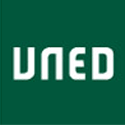Master International Political Communication - Máster en Comunicación Política Internacional
Imparte:
Bournemouth University-
Imparte:
-
Modalidad:Presencial en Dorset
-
Precio:All fees are quoted in pounds sterling and are per year.
There is a varied range of scholarships available.
For full-time study, for qualifications such as MA, MSc and LLM:
UK, CI and ROI students: £8,500-£11,500
International students: £17,000-£22,000 -
Comienzo:Septiembre 2026
-
Lugar:Fern Barrow, Poole,
Dorset (Bournemouth) BH12 5BB
Reino Unido -
Duración:1 Año
-
Idioma:El Master se imparte en Inglés
-
Titulación:International Political Communication MA (Full-time, Part-time)
Develop an advanced understanding of the issues and debates surrounding political communication, focusing on areas such as diplomacy, campaigning, reporting and media effects contextualised within the 21st Century communication and media environment.
A Bachelors Honours degree with 2:2 in a required subject, or equivalent
Required subjects include: Media and Communication, Politics, Public Relations, Journalism, Sociology or Social Policy
International entry requirements
If English is not your first language, you will need to provide evidence that you understand English to a satisfactory level. English language requirements for this course are normally:
IELTS (Academic) 6.5 with a minimum of 6.5 in writing and 6.0 in speaking, listening and reading, or equivalent.
Incorporating an international perspective, you’ll be provided with insights into the latest developments in political communication including the evolution of political and social change and technological innovations
Analyse current issues and practice with the aim of tackling difficult questions drawing on theories from social science, sociology, psychology, communication studies, and international/diplomatic relations
Benefit from BU’s extensive connections with a range of political organisations, local, national and international pressure groups, charities and communication consultancies
Learn from academics whose links with research institutions and political organisations span across the globe, from Massachusetts and Prague to Bogota and Auckland
We use a variety of teaching and learning methods including lectures, seminars, tutorials and workshops
Social Theory & Political Communication: This unit highlights the wider theoretical underpinnings of analysis of political communication and provides an introduction to the broader contextual and conceptual basis in which political communication is conducted.
The Psychodynamics of Emotion & Political Culture: Applying a psychosocial approach that combines theories and methods from psychoanalysis, cultural and media studies and political sociology you will explore the cultural and emotional processes that shape our relationship to politics in the late modern, media age.
Methods of Inquiry in the Social Sciences & Humanities: Drawing on your previous research knowledge and experience, the unit offers you a broad grounding in methods and processes of social science research and prepares you with the understanding and skills needed to rigorously design, conduct, report and evaluate research.
Political Communication & Campaigning: This unit provides an overview and critical appraisal of the academic study of political marketing, campaigning and reporting in the context of a diversified and international media environment. You will explore the historical development of political communication, by political parties, by mainstream media and via social media.
Public Diplomacy & International Relation: This unit offers a multi-disciplinary perspective on public diplomacy as an emerging field of study and practice at the intersection of international relations, communications, history, public relations and media studies. Making sense of contemporary debates and global trends is at the forefront of the unit that also takes a historical approach to support you in developing an in-depth, nuanced understanding of events and crises of the day.
Discourse, Rhetoric & Power: During this unit you will explore the intimate relationship in politics between discourse, rhetoric, and power. Its core aim is to expose the political character of social relations and practices by discovering the centrality of rhetoric and the construction of meaning in their constitution, institutionalisation, and contestation.
Final Project: You will critically apply the principles and techniques of systematic research to produce a piece of scholarly research in order to facilitate academic and professional thinking in the field of political communication. This unit will be underpinned by previous learning in Methods of Inquiry in the Social Sciences and Humanities in which you will have developed advanced knowledge and skills in research design, application and analysis.
Students who graduate from this course will:
Be equipped with the critical and analytical skills to pursue professional and academic research within the field of political communication and related disciplines
Possess appropriate academic and professional transferable skills enabling them to pursue careers across the political and corporate world
Be well-versed in a number of pervasive issues that shape and set the parameters for contemporary international political communications scholarship and practice.




